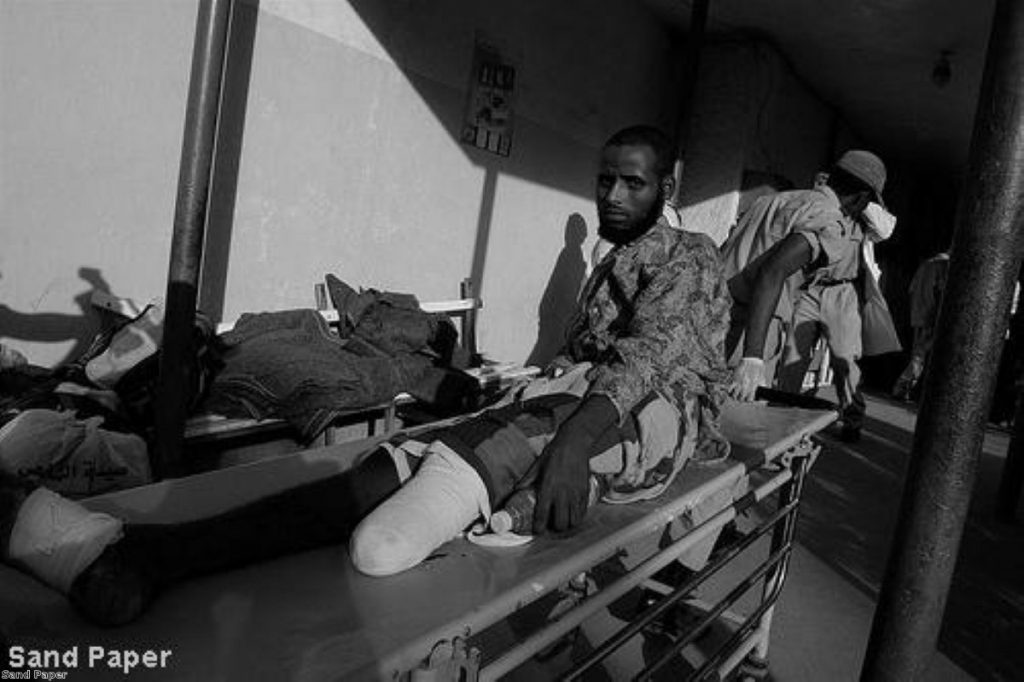What on earth is Britain doing deporting people to Somalia?
The Home Office guidance on Somalia is a fairy story. It ignores the warnings of the UN secretary general, the UN high commissioner on refugees, Amnesty International and Human Rights Watch. It ignores the reports – such as are available – from humanitarian groups on the ground. It ignores the accounts of rape, targetted killing and public executions. In the crazed world of the Home Office, Mogadishu is an oasis of serenity in a volatile country.
"There is no frontline fighting or shelling any longer; and the number of civilian casualties has gone down. The available country information does not indicate that, at present, the situation is of such a nature as to place everyone who is present in the city at a real risk of treatment such that removal to Mogadishu would be contrary to Article 3 of the European Convention on Human Rights."
This is the Home Office country guidance on Somalia. It is intended for one purpose only: to create a political environment in which the deportation of people to Somalia is acceptable.
The advice is so contrary to reports from the country that it is now the subject of an immigration upper-tribunal case. But the Home Office is not hanging around. While the case is ongoing, it is continuing with its deportation programme to Somalia. There were 33 enforced returns in 2013. In the first quarter of 2014, 19 people were sent back.


Last night, in a humiliating judgement for the home secretary, a deportation was halted by judicial review. Lawyers at Duncan Lewis managed to prevent the removal, which was set for this morning. The cruel, illogical process by which people are deported to a country which is manifestly not safe has, for now, been halted.
Because the truth is, there is no such thing as safe return to Mogadishu. Strip aside the optimistic Home Office descriptions and you find a modern day hell on earth.

It is true the government forces now have official control. It is true that Al Shabaab, the Islamic extremist group engaged in an appallingly violent war with government forces, has ceased to function as a conventional military group. But it has turned into something even worse. This is assymetrical warfare at its most grotesque.
On September 7th last year, a car laden with explosives detonated outside a popular restaurant. Al Shabaab waited for civilians to run to the scene to help the victims. Then a suicide bomber planted himself in the midde of the crowd and set off the second explosion. The death toll was 30.
In April, a simultaneous attack targeted a judge and three lawyers at the Banadir high court while a second strike hit Turkish aid workers on the way to the airport. Two months later the UN compound in Mogadishu was hit, killing 22.
A few months ago Al-Shabaab operatives threw a hand grenade into the foreign exchange section on Mogadishu's Bakara market. Public places where a certain amount of normalcy are on show are particular targets of the group.
They are also keen to target individuals they see as spies. Anyone who arrives in Somalia from the West, whether as an aid worker or a returned asylum seeker is considered a spy. When captured, they are usually beheaded.
As Al-Shabaab commander Ali Mohamed Hussein recently warned:
"[People returning from the West] are working for the infidels, and since they are working for the infidels, they are the same as the infidels they are working for as far as we are concerned."

Thouands flee wherever Al-Shabaab arrives. They impose a strict and murderous form of Islam, forcing women to wear veils, forbidding them from travelling without a male relative, banning football, music and television, and introducing stoning, public whipping and amputation for anyone who breaks the rules.
Women are attacked for breaking the strict Islamic rules. But they fear rape by government forces just as fiercly. It almost always goes unpunished. In January, a displaced woman who alleged that she was raped by government soldiers was prosecuted for tarnishing state institutions, along with the journalist who interviewed her. Government forces are beset by extremist infiltration, corruption and abuse.
European countries like Denmark and the UK have leapt on positive reports about the situation in Mogadishu. They celebrated when an Armed Conflict Location and Event Data Project (ACLED) report from last August suggested that battles in Somalia had fallen for the first time in Febuary 2013. But reports from the UN and Human Rights Watch from January this year paint a different story. The number of civilian deaths as a result of Al Shabaab activity nearly doubled between July and August 2013. As the ACLED itself said:
"The ongoing and deliberate attempt to cast Somalia as a nation on the brink of emerging into a bright post conflict future is undermined by the persistence of this threat."
Mogadishu may be nominally under the control of the federal government, but there was a surge in violent attacks in the capital in 2013. The UN high commissioner for refugees found hand grenade attacks doubled in May and June compared to the start of 2013, targeted killings occured daily, and mortar attacks were an ongoing threat. Monthly fatalities fluctuate between 100 and 600.

They concluded:
"We are appealing to all states to uphold their international obligations with regard to no forced returns, or non-refoulement. Somali nationals should not be forcibly returned to Somalia unless the returning state is convinced that the persons involved would not be at risk of persecution."
The British government has not heeded this advice. Mercifully, the quick actions of solicitors stopped another deportation to Mogadishu, another potential dead body on Britain's conscience. We now have to hope the upper tribunal strikes down the desperate nonsense asserted by the home secretary. There is no such thing as safe return to Mogadishu.












